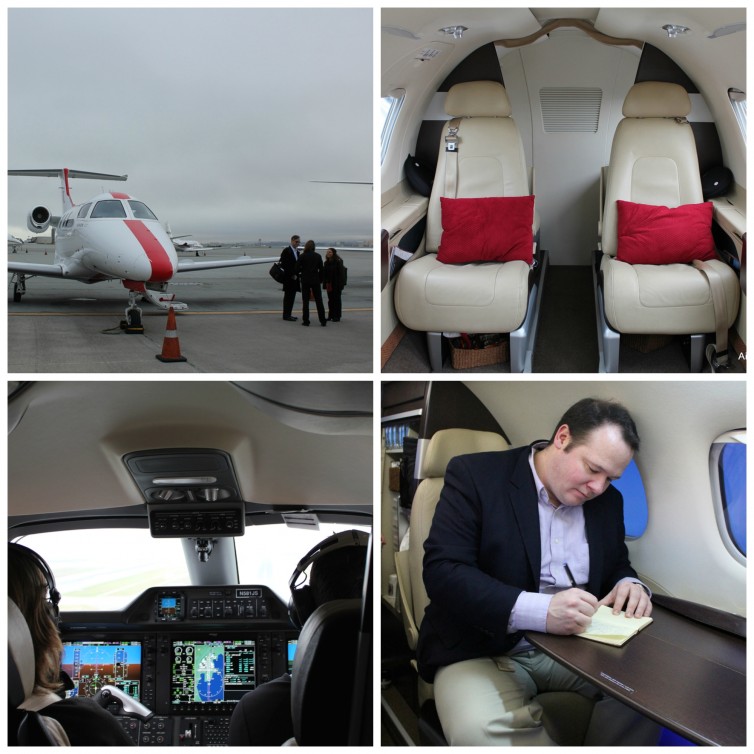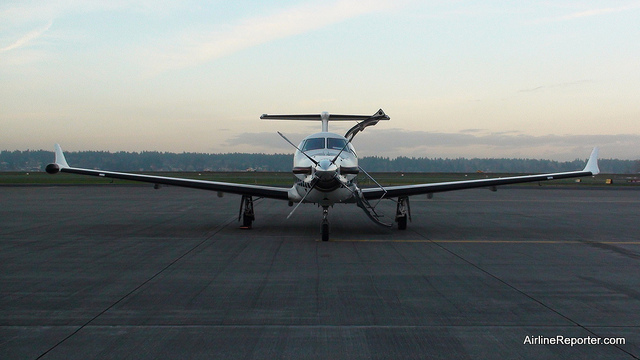This story was originally published on NYCAviation.com and shared with permission.
The more hours you have in your logbook, the cleaner your shirt is. By the time a pilot gets to the captain’s seat at a commercial airline, he or she has spent years wearing a white shirt while doing blue collar work, but their passengers will never know to what extent. Blue collar is not the image the public sees. What they see is a white uniform shirt with icons and symbolism dripping from the pilot’s shoulders and chest announcing experience, but it really represents the unglamorous hours spent behind the scenes, drenched in fuel, coffee, oil, and blue juice.
From the first flight lesson to pre-flighting a heavy, pilots get used to wearing (and avoiding) petroleum products. Sumping fuel tanks, wiping dripping brakes, checking hydraulic and oil levels, and brushing up against leading edges smashed with bug guts all while keeping a white shirt clean is a learned talent; by the time pilots start flying corporate, they have it perfected.
Corporate passengers don’t realize that it’s sometimes one of the pilots who had to jump on a tug and move the aircraft out of the hangar onto the ramp. In the winter, pilots have also shoveled and plowed snow in front of the hangar. Then, the pilots have not only pre-flighted and prepped the aircraft, checked the weather, filed a flight plan, made the coffee, loaded the ice, soda, snacks, newspaper, magazines, and catering, but they’ve also cleaned the wastebaskets, checked the lavatory blue juice levels, and made sure there was enough toilet paper. Very glamorous.

Private jet pilots, like those for JetSuite, need to do many tasks for passengers – Photos: AirlineReporter
Before anyone arrives at the airport, the flight crew might have had to track down and purchase special catering, and clients don’t think twice that their request might be inconvenient. When a client requests bagels and lox while on a road trip for a 0600 departure out of a small town airport in Mississippi, they don’t realize that the local restaurants and grocery stores don’t carry lox, so their flight crew had to drive an hour away to pick up their ’œminor’ request. The client is paying top dollar for the convenience of corporate travel, but it’s ultimately up to the pilots to make that happen.
Once the clients show up, the flight crew then transforms into baggage handlers and psychologists. When six guys pull up and admit they forget to tell dispatch that they’re bringing their golf clubs, it’s up to the pilots to decide if they can load it all, or confront the red faced anger of a corporate client who can’t bring his special set of clubs. This is the pilot’s chance to use his psychology degree that he never planned on using. He just got it so he could be a pilot, but sometimes things happen for a reason.
The actual flying of the airplane is when pilots perform the white collar portion of the job. They are locked in their offices, using minimal physical exertion while using all of their mental capacity. They are professional workers even though they’re wearing a uniformtheir uniform is white. But, they are also breaking the definition of what white collar is meant to be. It still means a high level of education, but these jobs are actually low-paying, by the hour, high stress and pilots usually have to spend thousands of dollars learning the trade, and then endure years as an ill-paid apprentice. It’s one of the rare occupations that require both blue and white collar skills, and people wonder why we still have pilots given the circumstances, but pilots know flying is not about transportation, it’s about transformation. It’s about learning how to easily move around the compartments of your brain and open several doors at once. The result of unlocking all those doors simultaneously creates a personal pride that can only be earned, despite the paycheck.
When an oil pressure gauge starts to move in flight, pilots use both colors of their collar and open up several learned skills at once. The blue collar instantly understands the mechanics of the situation while the white collar knows how to manage the fear, use the calm pilot voice to communicate, and together they get the aircraft safely on the ground. It’s learning this balance that earns pilots pride in what they do, even if their bosses want to pay them blue collar wages. It’s what will keep pilots in the sky, pride in their hearts, and passengers safely to their destinations.
This story was written by Erika Armstrong, who started at the front desk of an FBO and wore both collars on her way up to the captain’s seat of a commercial airliner. Her book, A Chick in the Cockpit, will be available nationwide November 10th. If you have comments or questions, she can be reached at er***@****************it.com.
Comments are closed here.

Hilarious perhaps, but also dead on the mark. Those mid-generation pilots, the hours builders between CFI and Big Time, certainly earn their meager money. At that point in their careers the only other option is short haul night freight for a company that feeds a mega-hauler. The Airplane may be painted in FedEx logo, you can bet that those boys and girls are not employed by FedEx. Their employment agreement says a lot about flying and little about Other Duties. In truth, more often than not, those overworked kids also unload and reload their own airplanes. No matter how one scores the effort, that is hard work. It gets one’s pristine uniforms dirty on the outside and sweaty from the inside, regardless of the season. Those kids are paying their dues and building their hours. Any decent pilot that will put up with that crap for 2-3 years, has the moxy to move up the food chain to the next step. Some do and some do not.
A great article, well written and I hope that R readers hear from you again. -C.
This may be true for a large portion of low hour commercial pilots, and I’m sure they earn their money many times over.
However, very little attention is given to line technicians. Most pilots, and almost all passengers, view them as orange vested valets. Prima dona pilots, rude passengers, and taking a lav dump to the chest or a jer fuel shower due to bad gaskets or broken gauges, they get it all.
Not trying to subtract from what pilots have to do, but at the same time they worry about one plane. They don’t have to slog out 10-16 hour days in bitter cold or extreme heat for $10 an hour, hoping for $5 from at least one plane.
Pilots don’t always have it easy, but line guys rarely do.
Chris, I agree with you that line people don’t have it easy and are for sure under appreciated by passengers and airlines alike.
However, pilots have worked hard to pay their way through college (often doing jobs, like line work), and then have to pay to learn how to fly, then take horrid wages just to earn the hours to start moving up until you become a pilot with the big boys.
I kind of think that pilots have earned the right not to be shit on (literally and figuratively).
Addendum: I forgot to mention that IMO, the Pilatus PC-12 is one of the slickest flying machines in today’s market. I flew Sea-Port’s PC-12 a couple of times, but I think they have withdrawn them from the PDX hub, in favor of their other region. Most cool? They generally fly the PC-12 with two pilots, but if all seats are sold, the drop the second pilot and sell the FO’ seat. By special arrangement, I’ve had that seat twice. Heck, I did not even need to make the trip; I just wanted to sit in that seat and enjoy techie-ride. Do Geeks do strange things? Of course we do! And yes, the trips were worth every dime! -C.
I love this i want to become a pilot
Thanks bye.